Perspectives on climate change: Future prosperity
Is present sacrifice necessary for future prosperity, or can our creativity sidestep sacrifice through innovation?
 Vishaan Chakrabarti
Vishaan Chakrabarti
Sacrifice is in the eye of the beholder. I believe people can lead more prosperous, socially conscientious, environmentally sound, and really, really fun lives in cities. Is that a sacrifice?
Vishaan Chakrabarti is a Principal at SHoP Architects, author of A Country of Cities, and Holliday Professor and Director of the Center for Urban Real Estate at Columbia University.
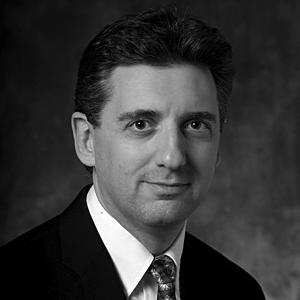 Stephen Gardiner
Stephen Gardiner
I don’t like the language of “sacrifice.” On the one hand, we don’t usually think of attempts to stop profound injustice as involving “sacrifice.” Yet inflicting severe climate change on the future would be a grave injustice. On the other hand, sacrifice is often understood as giving up something lesser for the sake of something more important. Widespread suffering in the future does seem more important than many of the things we might need to change.
Stephen Gardiner is Professor of Philosophy and Ben Rabinowitz Endowed Professor of Human Dimensions of the Environment at the University of Washington, Seattle.
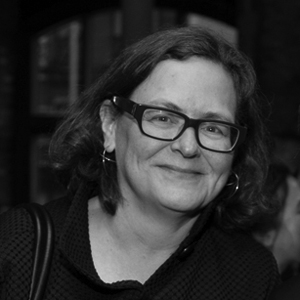 Rosalie Genevro
Rosalie Genevro
Sacrifice—if defined as cutting back on overall consumption in high-consuming societies—will be necessary, which is probably not a bad thing in many ways. In the United States we are pretty heedless to the impacts of our everyday actions, we are oddly inured to waste, and there is much that we could accomplish by simply being more conscious of effects. The harder questions are about how broadly sacrifice will be shared, and about how to not lose positive effects—for example, how not to lose the pleasure in diversity and tolerance of difference that many people gain through travel, if air travel must be limited. Creativity is essential; we won’t make progress without it. But both sacrifice and creativity are going to be part of our future.
Rosalie Genevro is Executive Director of The Architectural League of New York and the project director of The Five Thousand Pound Life.
 Dale Jamieson
Dale Jamieson
To a great extent sacrifice is in the eye of the beholder. The global middle and upper classes must lighten the burden they place on the planet and other people. There is no more reason to view this as sacrifice than there is to say that men have to sacrifice for gender equality or whites have to sacrifice in order to obtain true racial equality in the United States. We should celebrate moving the planet towards sustainability just as we should celebrate the spread of justice.
Dale Jamieson is professor of environmental studies and philosophy at New York University and author of the book Reason in a Dark Time: Why the Struggle to Stop Climate Change Failed–and Why Our Choices Still Matter.
 Alex Klatskin
Alex Klatskin
To me, this is the same question as #3. Innovation = Creativity & Regulation = Sacrifice.
Alex Klatskin is a General Partner of Forsgate Industrial Partners, a private industrial real estate development and investment firm based in Teterboro, New Jersey.
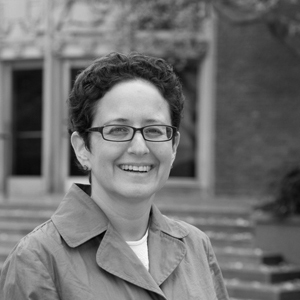 Melissa Lane
Melissa Lane
Taking seriously our ethical responsibilities to the future of the human project has to be the starting point. Given that, we should seek all ways possible to realize them. To the extent that creativity and innovation can succeed, that’s great, though we can’t afford to trust in future innovations where there is no evidence that they will come fast enough. Conversely, creativity can extend to rethinking what “sacrifice” in the present means. If sacrificing means giving up on better air quality or reductions in obesity, it may not be so much of a sacrifice at all. What we often think of as sacrifice is anything that requires a change in status quo expectations. But in fact, changing our expectations of what constitutes harm and benefit may make us better off now as well as improving genuine prosperity for future generations.
Melissa Lane is Professor in the Department of Politics at Princeton University, and affiliated faculty member in the Department of Classics and the Department of Philosophy.
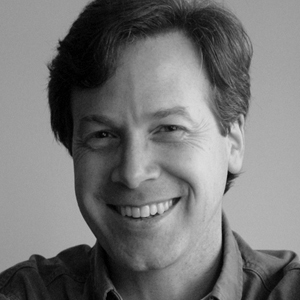 Anthony Leiserowitz
Anthony Leiserowitz
It’s not an either/or, but a both/and. And “sacrifice” is a word freighted with diverse meanings and interpretations—it’s never clear to me what this word means, without looking at the details and context of its use. Is it a “sacrifice” when someone decides to no longer drive a car and instead bike to work? I suspect many who do this actually view it as healthy and liberating. Just one example, but “sacrifice”—like “beauty”—is often in the eye of the beholder. Many of the actions we would need to take today to reduce climate impacts in the future and support future prosperity would improve our own lives today and in the future. Are these “sacrifices”? To some people yes, to other people no.
Anthony Leiserowitz is Director of the Yale Project on Climate Change Communication and a research scientist at the School of Forestry and Environmental Studies at Yale University.
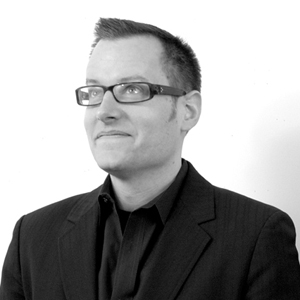 Paul Lewis
Paul Lewis
How is sacrifice defined, and more importantly, what systematic shifts in the fundamentals that underlie definitions of prosperity are required? One has to imagine and prepare for a different life, where innovation doesn’t just replace one form of consumption for another, but rethinks or mutates the desire for consumption in the first place.
Paul Lewis is a principal of LTL Architects and a faculty member in the School of Architecture at Princeton University.
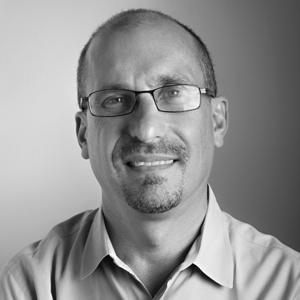 Ted Nordhaus
Ted Nordhaus
Nine billion people are going to demand modern living standards. The degree to which this will scale up energy consumption and other resource demands will simply swamp any sacrifices that “Western greens” are actually willing to countenance to their own lifestyles. There is no other solution to climate change and other global environmental challenges than technologies that allow all of us to achieve prosperity and modern living standards without destroying the planet.
Ted Nordhaus is a co-founder of The Breakthrough Institute — a paradigm-shifting think tank committed to modernizing environmentalism for the 21st century.
 Albert Pope
Albert Pope
“Sacrifice” defined as unbridled energy expenditures is necessary. Some would say, however, that abandoning our cars and getting back on our feet is real innovation, or at least progress. They would say that eating locally is innovation. Throwing off the technologies that alienate us from our bodies, and thus from nature, are not best described as sacrifices. Dirty technologies destroy human bodies as much as they destroy any other form of natural life. Thinking of nature as something beyond a human resource cannot be couched in the language of sacrifice. In other words, we have already “sacrificed” ourselves and our world to murderous technologies. Overcoming them might be thought of as the opposite of sacrifice.
Albert Pope is the Gus Sessions Wortham Professor of Architecture at Rice University. He is the author of Ladders (1997) and numerous articles concerning the broad implications of post-war urban development.
 Ted Steinberg
Ted Steinberg
The idea of innovation has a great deal of resonance today because it holds out hope for addressing the slow-down of the economy since the early 1970s. But innovation will not, by itself, address the fundamental social inequality of life under twenty-first century capitalism. So if the question is should there be more of an emphasis on distribution instead of growth, the answer is: yes.
Ted Steinberg is Professor of History and Professor of Law at Case Western Reserve University. His new book Gotham Unbound: The Ecological History of Greater New York (2014) examines the ecological changes that have resulted in the reality of present-day New York City.
 Emily Talen
Emily Talen
Despite my Calvinist upbringing, I don’t believe in sacrifice. But I do believe in the common good and the social contract. That’s what we need to get back.
Emily Talen is a senior sustainability scientist and a professor in the School of Geographical Sciences and Urban Planning at Arizona State University.
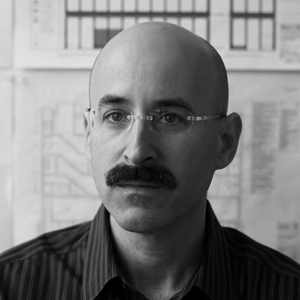 Adam Yarinksy
Adam Yarinksy
Present sacrifice is not necessary for future prosperity. For example, an innovative yet pragmatic approach such as the “Passive House” improves personal comfort and quality of life while reducing energy demand by approximately 70-90%. (Also, at this level of consumption, net zero is readily attainable using alternate energy sources.) Ingenuity and creativity can yield unforeseen, positive outcomes.
Adam Yarinsky is a principal of Architecture Research Office (ARO) in New York.
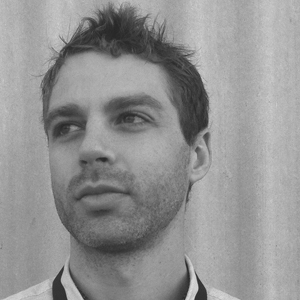 Andrew Wade
Andrew Wade
Present change is needed for future prosperity: whether that change is viewed as sacrifice depends on what a particular individual values and to what they feel entitled. In this view, sacrifice is socially and culturally constructed. Present change doesn’t mean we need to live impoverished lives, but it does mean that we cannot wait for new political, economic, and technological systems to be delivered to our doorstep.
Sacrifice can be viewed as an unexpected consequence of bad design. A prosperous future will include innovations in carbon-free energy and transportation, which in theory would allow us to maintain some lifestyle habits without negative environmental consequences.
Andrew Wade was the J. Clawson Mills Fellow at The Architectural League of New York and the project lead of The Five Thousand Pound Life from 2012-2015.

